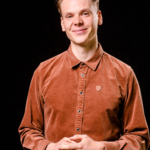The circular economy offers solutions to the sustainability crisis faced by our world. It plays a central role in mitigating climate emissions and the loss of biodiversity as well as in the creation of a sustainable and competitive economy. From the perspective of the economy and the business sector, the circular economy presents new business opportunities as people shift from a disposable culture to new models of consumption and ownership.
Rethinking ownership is a key aspect of circular economy business models. In a circular economy, instead of continuously manufacturing more goods, products are shared, rented, repaired, maintained, upgraded, recycled and reused with the help of various services. Consumption does not end, but it becomes more sustainable.
The ownership of products increasingly remains with their producers or intermediaries, ensuring that products and materials remain in efficient use throughout their life cycle. These business models are referred to as producer ownership models, which fall into four main categories: product-as–aservice, material-as-a-service, performance-as-a-service and function guarantee, such as extended or lifetime warranties and material return and deposit systems. Producer ownership is also supported by sharing platforms and various digital solutions.
The report presents a vision of rethinking ownership, which outlines how, by 2030, companies will have transitioned from simply selling products to renting, maintenance and returns, thereby taking ownership of products throughout their life cycle. Economic steering methods, legislation and the financial markets will have accelerated the shift to new forms of ownership.
Pioneering companies and experts were interviewed for the report to assess the advantages and challenges associated with producer ownership. Rethinking ownership presents new business benefits to companies and supports the transition to a circular economy. Producer ownership models create close relationships with customers and enable continuous cash flow. In the long term, they also reduce the business risks that may be caused by regulatory changes and the availability of financing. Legislation aimed at mitigating climate change and the excessive consumption of natural resources puts pressure on companies – and creates incentives – to engage in sustainable business.
In Finland, the strategic programme to promote a circular economy presents the opportunity to promote the rethinking of ownership through, for example, the creation of service models and sharing platforms. In the European Commission’s new Circular Economy Action Plan, sustainable consumption and product policy hold a central role, and producer ownership is one solution for achieving these goals.
The operating environment does not currently support the transition to producer ownership. The report presents action proposals to decision-makers in Finland and at the EU level to promote the transition to producer ownership.
Opportunities may arise from developing legislation on producer responsibility, implementing product and material passports and standardising product-related information. In the area of taxation, the transition would be supported by sustainable development tax reform: potential tax concessions for new forms of ownership and tax increases for linear economy products. Public funding and public tendering processes must support resource-wise products and services. Cross-industry business ecosystems and a circular economy infrastructure need to be developed by supporting a broader co-operation through funding with regard to product life cycles or entire industries. And investments in training and skills development can improve the circular economy competence of businesses. Companies, for their part, need to understand the change in the operating environment and respond to the challenge by adopting new business models. This calls for investment in competence development, technology and infrastructure.
Making the shift to producer ownership is possible. Pioneering companies are already applying circular economy business models and there are examples of successful circular economy businesses in Finland and internationally. Nevertheless, the major change, in which businesses adapt their operations to the earth’s carrying capacity, is still a long way off. The transition towards rethinking ownership can be accelerated through smart decision-making and appropriate incentives.

















Recommended
Have some more.